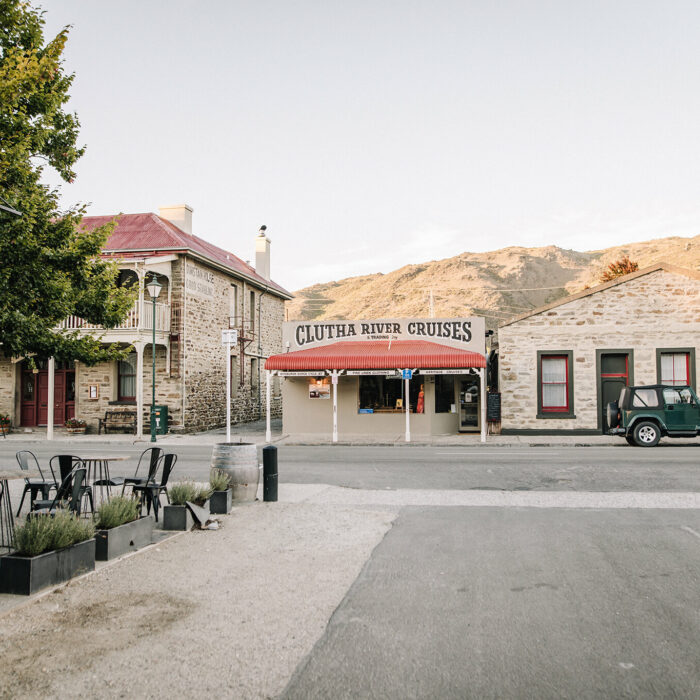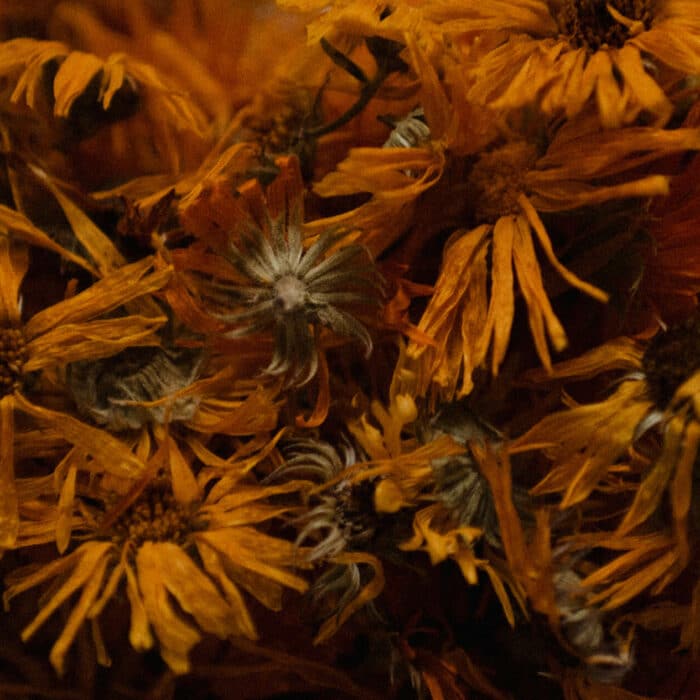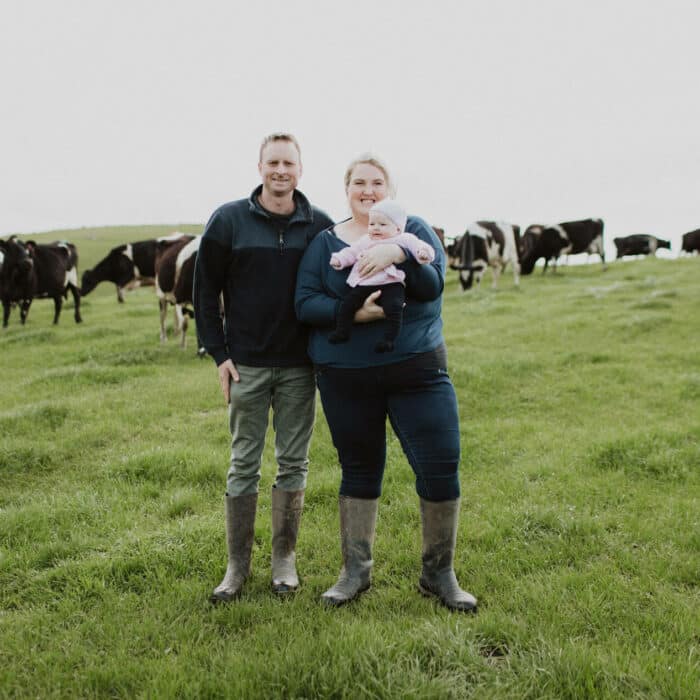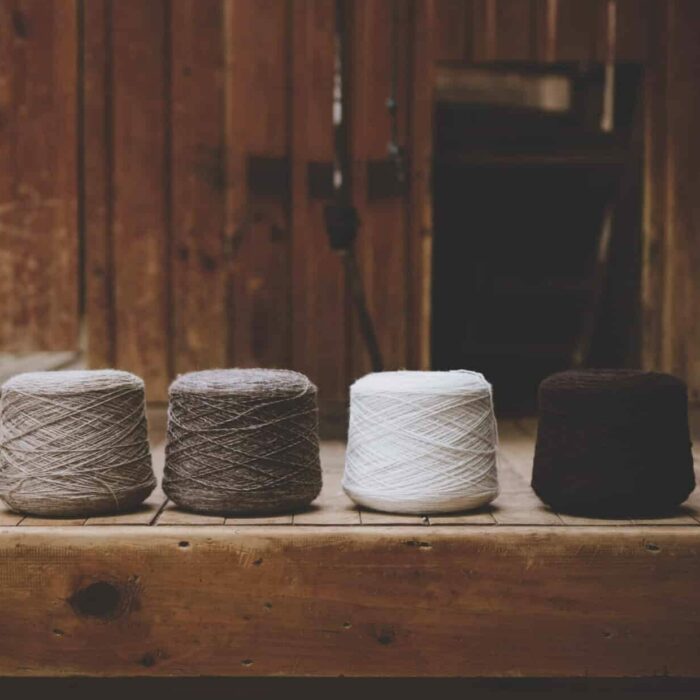01 December 2022
Forging Friendships
Ngā Hononga. Common Threads.
writer: Felicity Connell
photographers: FRANCINE BOER, VIVIAN GEHRMANN & ABBE HOARE
As a kid, friendships felt simple: you made them at kindy, on the sports field or in class. But when you take a job and move somewhere new as an adult, it can be hard to make friends when it feels like everyone already has a social circle. Four women from across the country share how they got stuck in to their new homes and found connections through local clubs and social groups.
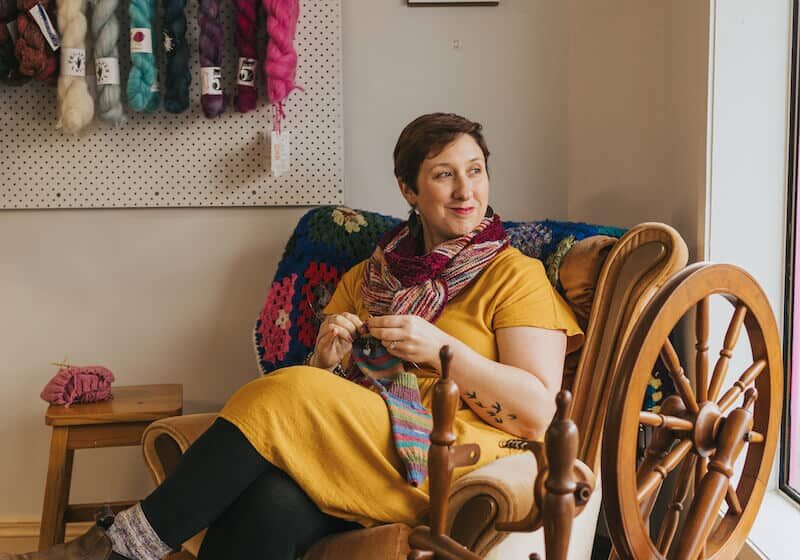
“My biggest piece of advice would be to think about the types of activities you enjoy and then try to really be brave and put yourself out there, and show up, even if you’re not sure how it’s going to go,” Katie says. “It’s incredible how quickly you can form a connection based on just simple things that you enjoy, whether it’s gardening, craft or martial arts.”
Katie Andrews
Canadian Katie and Ben, her New Zealand-born husband, have lived in Canada for the past sixteen years. A desire for their four children – Lucy, 14, Abigail, 12, Oliver, 9, and Zelie, 4 – to know more about their New Zealand heritage, and to be closer to extended family, saw them move to Napier in the middle of the Covid pandemic. With the support of the local knitting community, Katie recently opened The Knit Nook, a specialty wool shop.
When they first moved to Hawke’s Bay, both Katie, 38, and Ben, 41 were starting their social networks from scratch. “I started thinking, ‘How do you make friends as an adult?’ Often the most obvious place for a lot of people is through their children’s schools. But that’s not always a natural connection,” Katie says. “Just because I’m a parent and you are a parent doesn’t mean we have anything in common.”
Already an avid knitter, Katie dug around online for a local group and found YarnHB, a Hawke’s Bay-based knitting group that meets three times a month, rotating between Havelock North, Napier and Clive. “They said, ‘You’re always welcome to come to one of our events, the more the merrier!’ I decided to get really brave and showed up at the pub where they have their regular yarn nights. I just walked up to a group of strangers and introduced myself, sat down and pulled my knitting out. They were the warmest, most welcoming people, and just accepted me without question. I didn’t have to do anything to belong,” she says.
“The women in the knitting group inserted themselves in my life, in all these places that I needed help. It completely changed the way our family settled in this country, having these amazing women come alongside me. We’re so different. We range in age from twenties through to seventies, so we’re all at different stages of life, but when we all sit down and get our needles out, we are a little family.”
It was this group of knitters who encouraged Katie to open her first shop after only a year or so in the country. It’s stocked with curated, beautiful hand-dyed yarns, New Zealand wool, needles for knitting and crochet, and more. “I’ve had an incredible amount of help through my group, from helping me set up my website, through to pricing and stocking. It’s kind of every knitter’s dream to have a wool shop, so the shop has been another form of community-building, with the others being able to share in the experience with me,” Katie says.
“I feel so incredibly grateful and blessed to have so quickly found a group of women that I can feel vulnerable with if I need to – because it is a lot, moving across the world. I’ve had moments of feeling overwhelmed and homesick and everything else, trying to find your way in a new country. But through the knitting group, I’ve had lot of joy that I didn’t really know that I could have in my thirties, starting over again in a new town, and a new country.”
In the end, a big part of Katie’s motivation to form these firm ties in the community is so she can be a positive example for her kids. “The more I put roots down, find friendships and figure out who to call or where to go for different things that we need as a family, the more settled they feel, because they see that I am, too.”
“As well as coming to the monthly meetings, get involved in the fundraisers as well – like picking up hay or covering silage stacks. You’re lifting a bail with someone, you are throwing a tyre at someone or you’re splashing them with mud. It’s hard work but it’s fun, too, and you usually get to relax over beers and a barbecue at the end.”
Seònaid Whitehead
Seònaid’s first impression of her local Young Farmers Club wasn’t great – but a chance meeting at Fieldays helped her give it another go, and now she’s making sure everyone feels welcomed and connected.
Moving to Morrinsville five years ago to work on a dairy goat farm, Seònaid, 25, didn’t initially prioritise making friends. Kallum – her then-boyfriend, now-husband – was still based in Palmerston North, studying at Massey University. “I was either working on the weekends or travelling back to see Kallum. I wasn’t playing sports, and apart from the people I was working with, I wasn’t meeting any new people.”
It took Kallum joining her in Morrinsville for Seònaid to find the motivation to make her own friends. “It can be hard when you move to a new town, and you know no one. I grew up on a dairy farm in Taranaki, so had to move away from school friends when I went to uni. Then after uni, I had to start again in a new town. When Kallum moved up here, he joined the rugby club and made friends straightaway. I realised I needed to make the effort to make my own friends.”
She had belonged to the Young Farmers Club at Massey but had been told that her local club, Ngarua – now Morrinsville-Ngarua – wasn’t that dynamic, and not to bother. “I decided to get out of my comfort zone and make my own mind up about the club. It was tricky at the start. The club only had eight members at the time. They would meet at the pub, and it was very male-dominated. I went with another woman from the farm I was working on, and no one really made an effort to talk to us. It was awkward and not very welcoming. We went twice and decided not to go again,” Seònaid says.
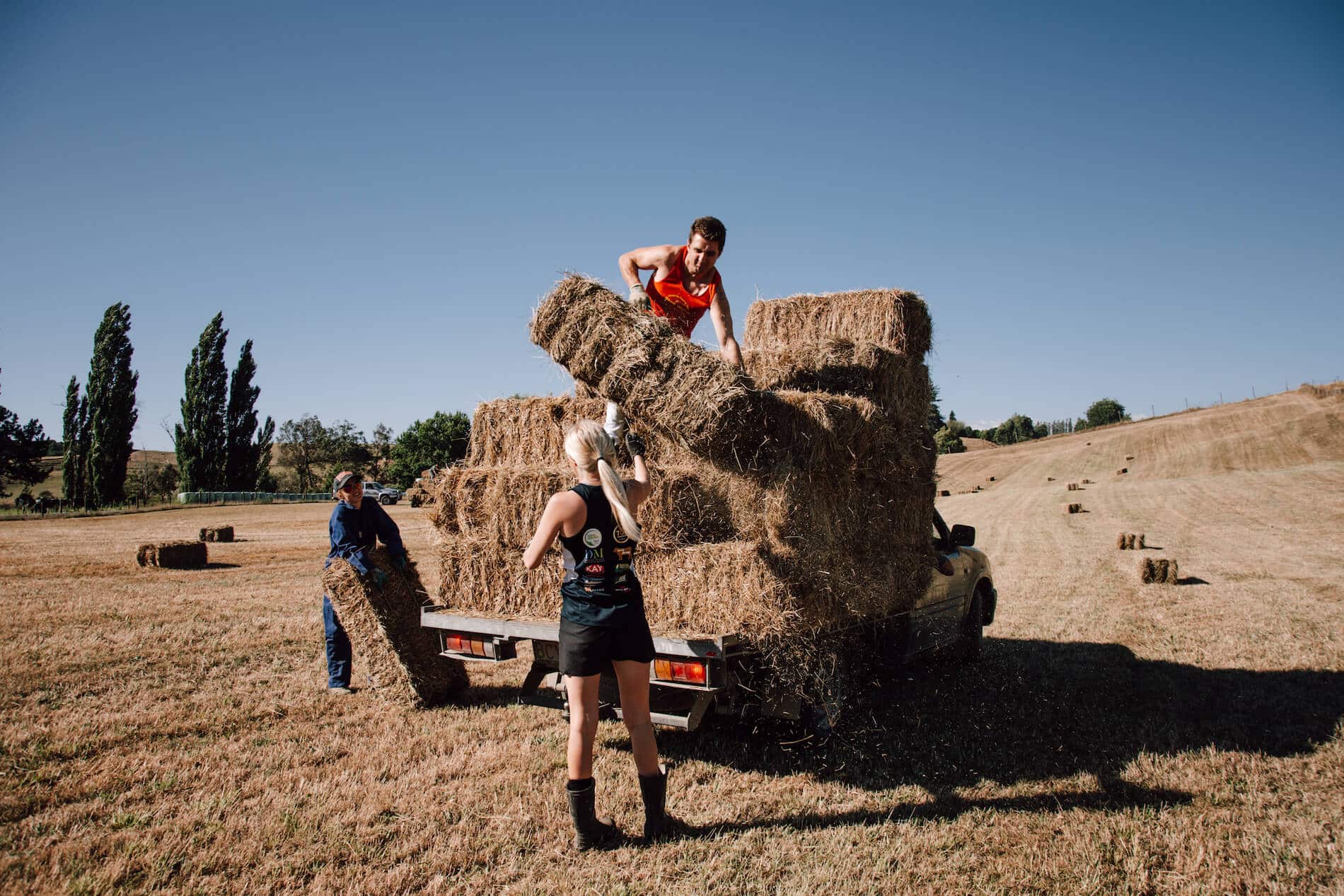
A few weeks later at Fieldays, someone she didn’t recognise waved out to her. It turned out he was part of the Morrinsville-Ngarua Young Farmers Club, but admitted he didn’t introduce himself at the pub meeting because he was worried he would get teased for talking to the two new women. “I sat down with him and I told him how uninviting we felt it was, and that I expected better from a Young Farmers Club. And to his credit, he totally agreed with me. He promised if I gave it another go, he’d not only support me, but he’d ensure it would be a better experience for all new members. From then on, we put a huge emphasis on welcoming all new members. You might not end up being their best friend, but you were until they found their own niche, their own people in the club.”
Seònaid’s robust feedback was a turning point for the club, which now has an even balance of men and women and – at around 50 members – is the third-largest Young Farmers Club in the country. They’ve expanded the range of club events, and instead of always meeting at the pub, they’ll take turns at meeting at each other’s farms, or have potluck dinners. “I’ve had feedback from the other women that it’s because we don’t sit at the pub every Monday night that keeps them coming back. Having different ways to catch up makes it easier for people to build connections,” Seònaid says.
From knowing no one, Seònaid now has a close group of friends. “When we got married, many of our guests were my friends from the Club. I make time to play sports now as well. You’ve got people to hang out with, or to call on when you need support. You know that you’ve built a solid relationship with someone when they trust you to look after their dog, or their child,” she says with a laugh.
“We’re pretty open in our club that farming is isolating, but it doesn’t have to be. If you go to a Young Farmers Club, you build connections. Even during those times when you can’t get off the farm, the Snapchat or Messenger group will be going off, and you’re in touch with each other. If you are feeling isolated, Young Farmers is definitely key,” Seònaid (second from left) says.
“Give it a go! As scary as it can be to join a new team, and it might be a bit of a commitment with travel, but it’s so worth it,” Amy says.
Amy Ashworth and Katie McNeill
Amy and Katie, both 21, are interns on The Fairlight Foundation’s year-long practical course to support and develop women in agriculture. Based at Fairlight Station, near Kingston in Southland, they were complete strangers at the beginning of the year, but their twice-weekly road trips to netball training and games have cemented a strong friendship.
“For both of us, all our families and friends are in the North Island,” Amy explains. “Neither of us knew a single person in Southland. The first few weeks were definitely challenging. We only knew each other, and even then, at the beginning, we barely knew each other.” Katie agrees: “We were so bored and lonely on the weekends.”
“As part of the course, we share our career goals, and we found out that Katie’s and mine are exactly the same, which is a focus on heading shepherding, working up to management and farm ownership. One of the core values here is community, and although we’re in a remote location, we’re encouraged to get involved. Early on we found out that we had both played netball in the past, so although we didn’t know each other very well at that stage, we agreed to both try out for a netball team.”
Their closest team was based in Mossburn, between Invercargill and Queenstown, a forty-minute drive each way for training, and nearly ninety minutes on game days. “It was driving to netball together where we really bonded. The netball team calls us ‘Kamy’ because we’re never apart, we’re always together,” says Amy. “Yup, pretty much two peas in a pod,” Katie confirms. “And we back each other up. If I was rostered to work on the farm on the weekend, Amy would muck in so I’d finish in time to make netball, and vice versa.”
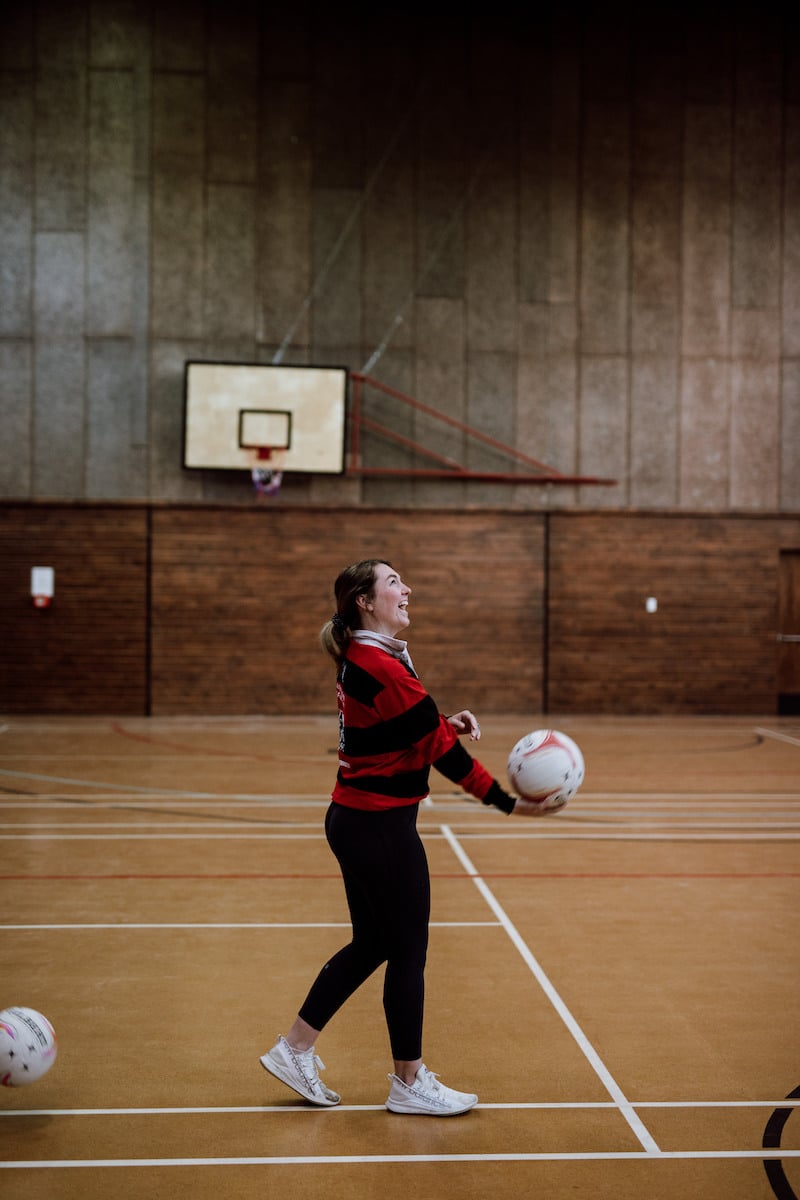
As well as their own close friendship, they gained a network of other friends through their netball teammates. “They were all so welcoming and supportive. They knew that we had such a long drive to get there. They’d invite us back to their places after the game so we could have a shower, and hang out with them,” Katie says.
“We were some of the youngest in the team, but they all went out of their way to include us in what they were doing. A couple of them in particular would invite us to dinner, or on weekend road trips. They knew the importance of getting us off the farm and communicating with other people. We thought netball might be our way to make friends, and yeah, we made lots of them,” Amy says with a laugh.
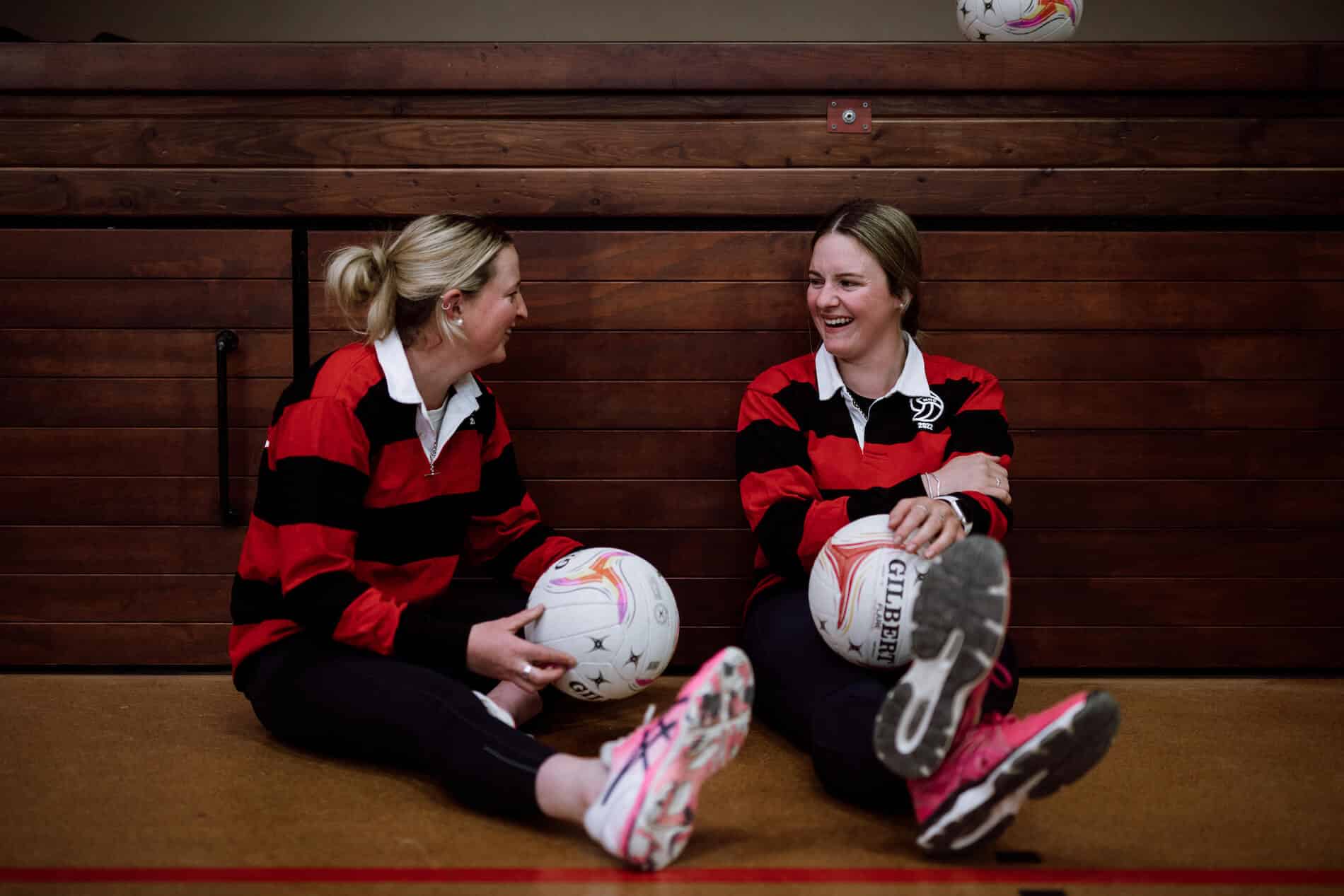
Having other women in the team with ties to the rural sector was also a bonus. “There were a few on the team who are also shepherding like us, so they knew what it was like to be starting out,” Amy says. “They gave us career advice and encouragement, like if you were offered the chance to do something new on the farm, always take it. They gave us the confidence to give anything a shot.”
Katie and Amy’s commitment to the team went beyond just training and playing. “We went to the AGM right at the start, because we were curious about it all. From then on, we went to pretty much everything – the trials, training, fundraising, any opportunity to give a hand. It’s shown us the importance of being involved in the community,” says Amy. At the end of the season their team won the premier reserve title at the Central Southland winter netball tournament. Amy and Katie were singled out – or doubled out! – for a special end-of-season club award, the Coach’s Cup, which recognises dedication and commitment to the club.
When their internships finish at the end of 2022, both Amy and Katie are heading back up to the North Island to continue their shepherding careers, but on separate farms. Their new farms are a couple of hours apart, and they’re already planning to spend weekends hanging out together. “It will be sad not living, working and playing together, but we’ll be close enough to be able to catch up all the time, thankfully,” says Amy. And they’ve already sussed out netball clubs they can join.
Amy advises others going into a new community to consider joining a sports team. “If you know the basics of any sport, whether its netball, rugby or hockey, I’d definitely recommend it as a way to make friends. When we started, we were pretty rusty, but they teach you pretty fast so you can get amongst it.”

This story is part of THREAD, a year-long project by Shepherdess made possible thanks to the Public Interest Journalism Fund through NZ On Air.
If you enjoyed this story, please share with someone else.
This story appeared in the Raumati Summer 2022/23 of Shepherdess.
Get your hands on a copy.
Related Stories
The course providing farming couples with the tools to make their businesses resilient, adaptable – and profitable
Ann and Scott took part in AWDT’s 'Our Resilient Farming Business' course.
